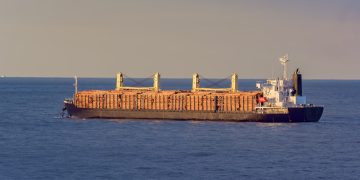ISWAN has launched a new self-help guide to provide seafarers with guidance on how best to enhance their wellbeing despite many of the challenges of life at sea. This guide brings together evidence from the field of Positive Psychology to help seafarers recognize critical elements of their psychological wellbeing, and provides straightforward, practical tips that could help while they’re away at sea.
Additionally, the Shipowners Club announced extension of its partnership with the International Seafarers’ Welfare and Assistance Network (ISWAN), to deliver a series of articles on psychological wellbeing at Sea. Their cooperation on mental health issues dates back a decade when the Club noticed that many claims were related to crew-related incidents onboard. Since then, the Shipowners’ P&I Club has contributed towards ISWAN’s Seafarers’ Health Information Project (SHIP), an initiative that promotes and distributes health information to shipping companies, seafarers’ centres and direct to seafarers themselves.
The recently-published guidance is the first booklet of the series related with crew member’s Psychological Wellbeing at Sea. The document highlights the importance of doing the things that make us happy, as evidence suggests that actively and intentionally making time to engage in things we like to do can have a real and positive impact on our wellbeing. Namely, it provides the following advice:
- Be ambitious : What activities that you love to do could you do whilst you are at sea? Try to think of a range of activities, some which may be quiet and solitary and others which may be more active or can be done with others.
- Plan ahead for your next voyage and take the materials with you that you need; whether it is for creative projects or games, puzzle books, or a library of DVDs on your hard drive.
- Enhance the effect of the pleasurable activities you do:
-Schedule time for pleasurable activities in advance, so you can look forward to them
-Savour the moment when you are involved
-Remember it later or tell others about it.
 According to the report, another important factor for wellbeing at sea is gratitude:
According to the report, another important factor for wellbeing at sea is gratitude:
- Three Good Things : The document recommends seafarers to set aside ten minutes before sleep every night for the next weeks, to write down three things that went well today and why they went well. The three things can be small things or they can be important things.
“Writing about why the positive events in our life happened may seem awkward at first, but please stick with it for one week. It will get easier. The odds are that you will be less depressed, happier, and addicted to this exercise six months from now.”
- Stop and count your blessings : When we’re busy, or we’re not feeling at our best, we often take for granted the good things in our life, however, it is important to give some attention to thoughts about what we treasure.
“At any moment of the day, just notice what you appreciate around you. Perhaps the sunset over the sea is breath-taking or you have a pod of dolphins swimming alongside the ship. It may be something like having work that means you can provide for your family at home, or simply a good cup of coffee.”
- Express Gratitude : Make a point of saying thank you to people who are important, kind or helpful to you.
- The gratitude Letter / Visit : It is advised for seafarers to think of someone who did or said something that has made a positive difference to their life in some way. Their task is to write a letter of gratitude to this individual.
“The letter should be specific about what they did or said that made a difference to you and how it has affected your life. If possible, send it to them or even better, arrange to visit them and read it to them.”
Explore more by reading the full report:


































































